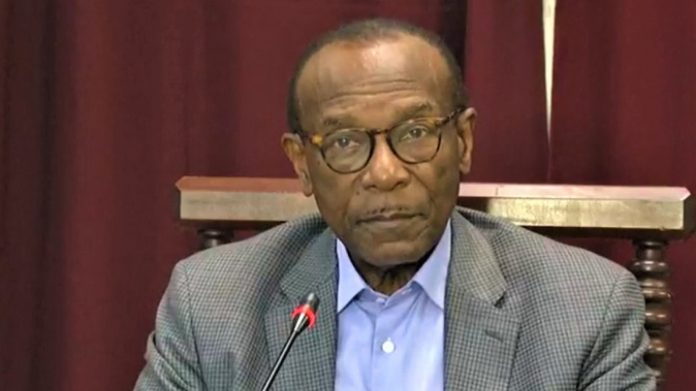By Carlena Knight
“I anticipate that within the next two to three weeks that we will be giving booster shots in Antigua and Barbuda,” Health Minister Molwyn Joseph told Observer yesterday.
He said he anticipates that the National Covid Technical Working Group will give their recommendations for Covid booster jabs in short order. Once this report is in hand, plans can be put in place for the process to begin.
“The National Technical Working Group is to advise the government and we anticipate that they will be doing so shortly and share what they recommend in terms of booster shots. I am confident that we will be giving booster shots and as soon as we get the report and the scientific assessment then we will go ahead,” Joseph explained.
Earlier this month, the group was tasked by the Cabinet with reviewing guidelines for the local administration of booster shots.
A booster is an additional dose of a vaccine given after the protection provided by the original shot/shots has begun to decrease over time.
Currently, boosters are being given out worldwide for Pfizer BioNTech, Moderna and Janssen/Johnson & Johnson vaccines.
The USA’s Centers for Disease Control and Prevention (CDC) recommends a Covid-19 booster for persons 18 or older who have received the Johnson & Johnson vaccine at least two months ago, and for those who received both shots of either the Moderna or Pfizer jabs at least six months ago.
Individuals with a medical condition associated with immunosuppression are eligible to receive an additional vaccine dose as well.
AstraZeneca and Sinovac booster shots are also on the market with several countries including the UK, Malaysia and Canada recently giving approval for them to be administered to persons 18 and over.
The UK extended its booster programme just last week. Previously, only people over the age of 50 and those with underlying health conditions had been eligible for a booster shot, but the UK decided to broaden the age bracket to 40 years.
They too will have to wait six months after receiving their second shot before they can have the third dose.
Closer to home, Barbados last month rolled out its programme and became the first Caribbean country to administer booster shots.
Since then, it has widened the process allowing for all adults who received their second dose of the AstraZeneca vaccine six months ago or longer to receive the booster. Previously, the booster was given to individuals 70 years and older, immunocompromised patients, and frontline and healthcare workers only.
With these regulations being implemented around the globe and even in the region, the question of what recommendations the National Covid Technical Working Group will make is now heightened but although those details could not be acquired at this time, Joseph did say that, like in many countries around the world, the elderly would be the first set of persons to be re-jabbed.
“The senior citizens would be given priority, there’s no doubt about that,” he added.
The decision to jab the elderly first is a sentiment echoed by some international medical officials.
AstraZeneca’s chief executive Pascal Soriot and biopharmaceuticals research and development executive vice-president Sir Mene Pangalos say giving the most vulnerable, who may not have built up a full immune response from the first two, a third top-up dose is “sensible”.
They advised however that any decision to administer a third dose to a larger cross section of the population must be based solely on clinical data.
Discussions on booster shots have been ongoing for several months in the country with many questioning the efficacy and purpose of the jab.
But data from the United Kingdom’s Health Security Agency shows top-up jabs boost protection back up to over 90 percent against symptomatic Covid-19 in adults aged over 50.
The findings show that two weeks after receiving a booster dose, protection against symptomatic infection in adults aged 50 years and over was 93.1 percent in those with Oxford/AstraZeneca as their primary course and 94.0 percent for Pfizer-BioNTech.
Although much of the world’s focus is now turning towards boosters, the World Health Organization is advising countries to limit administering booster shots and to allocate scant doses to the most vulnerable.

